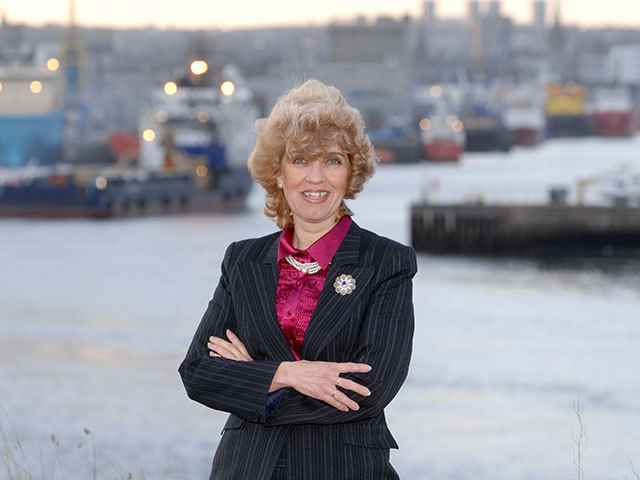
Jeanette Forbes is living proof that women can have a successful career in the oil and gas sector.
Now the chief executive of her own company – PCL Group – providing computing and telecommunications assistance to energy companies, she caught up with Young Energy to share her experience of building up a career in what is often thought of as a male-dominated sector.
The energy industry, says Forbes, offers an exciting and challenging career for young women.
“I am so envious that I am not having my career all over again,” says Forbes, who started out working in telecommunications in the Army.
After moving north to Aberdeen with her husband and two young children, she then landed a job working at the Aberdeen Royal Infirmary during the time of the Piper Alpha disaster in July 1988 when 167 oil workers died.
She then embarked on a career in oil and gas, starting out as a secretary for a land-drilling company and working her way up through the business.
Fast forward more than 30 years and she is now leading her own highly successful company and championing the progression of women in the sector.
“There was just something that drew me into oil and gas,” says Forbes. “It was really exciting, it was challenging and it seemed to kind of focus people. It’s all the things you wanted from a career.”
She admits it wasn’t easy juggling family life and recalls being intimidated when she attended her first black-tie event with a sea of men wearing “dickie bow ties and suits”.
However, she says this shouldn’t put young women off embarking on a career in the sector.
“Back then, it was very male dominated, but the barriers have been broken down now,” says Forbes, whose company celebrates its 14th birthday this month.
“There’s this image that it’s not glamorous enough and we need to change it quickly. We’re not footballers’ wives that work in oil and gas – we are intelligent, we have the confidence and we have the capabilities. I feel these are the things that drive you and spur you on to say ‘I can do that’ and you will.”
She advises any young women interested in working in the sector to focus on the Stem subjects at school – science, technology, engineering and maths – and gain work experience to get a true insight of working life in the sector.
“It’s very important to get access to how things run in an office or in a workshop – it’s important to get that real-life experience,” she says.
“You have to work hard. It’s challenging, which means that you have to use your brain. But it’s ultimately so rewarding.”
She says she still remembers the achievement of working on her first oil support vessel in Aberdeen harbour.
“The first boat I ever worked on came out of a telephone call at 7.30 in the morning to PCL. They said they had a vessel that was fully loaded in the harbour and it couldn’t move. The computers had gone down,” says Forbes.
“I had never worked on a boat before in my life. I had worked in offices and I knew how to fix computers, but on a vessel it’s slightly different. So I said to them, I’m not going to promise but I’ll go down and have a look.”
She found a faulty hard drive and took it back to the office, fixed it and then put it back on the ship.
“I then went and watched that vessel sail from Aberdeen Harbour at 4.30pm and said to myself ‘I did that’,” she says.
This feeling of “I did that”, says Forbes, is the reason why she lives and breathes her job and why in her eyes there is no better sector to be working in.
Recommended for you
